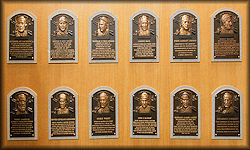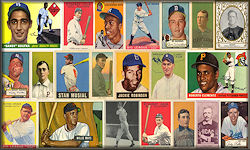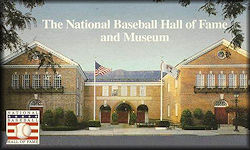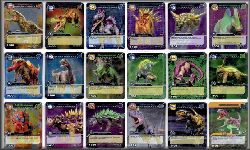"There has been only one manager – and his name is McGraw.”
These were words used by Hall of Famer Connie Mack, baseball’s all-time winningest manager, to describe John McGraw. Mack’s praise was a testament to a man who was known for doing absolutely anything to win a baseball game.
Beginning as a player, the fiery McGraw was among the first to deploy strategy and guile to win. The oldest of eight children born to Irish immigrant parents, McGraw learned how to fight for everything that was given to him. Standing just 5-foot-7 and weighing 155 pounds, McGraw broke into the National League with the Baltimore Orioles in 1891 and was one of the game’s original stars. He led the league in runs twice and sported a lifetime batting average of .334 while introducing the hit-and-run, the Baltimore chop, the squeeze and other tactics to scratch out runs during the Dead Ball Era.
McGraw played third base in Baltimore and St. Louis for 11 seasons before taking over as player-manager of the New York Giants in 1902. For the next 30 years, McGraw was the autocratic leader of the team. Nicknamed “Little Napoleon,” McGraw tirelessly developed players in the way he felt the game should be played. He also translated his aggressive tactics as a ball player to his managerial style, frequently calling for pinch-runners and encouraging his players to steal as many bases as possible.
With McGraw in the dugout, the Giants morphed into a perennial powerhouse. New York captured the NL pennant in 1904, but McGraw refused to enter his squad into the World Series due to his hatred of Ban Johnson and the fledgling American League. The Giants won the pennant again in 1905, this time defeating Mack’s AL champion Athletics to capture their first World Series title.
McGraw collected a total of 10 National League pennants and three Fall Classics while mixing brilliant strategy with tempestuous emotion. He was the first manager to win four consecutive pennants in either league, and set a major league record with 131 ejections (since surpassed by Hall of Famer Bobby Cox).
"I have seen McGraw go onto ball fields where he is as welcome as a man with the black smallpox,” said McGraw’s star pitcher, Hall of Famer Christy Mathewson. “He doesn't know what fear is."
McGraw finally retired in 1932 with 2,763 victories – still second only to Mack on the all-time list. The Giants posted just one losing record in his 26 full seasons at the helm.
"In playing or managing, the game of ball is only fun for me when I'm out in front and winning,” said McGraw. In 1937, he became a member of the Hall of Fame’s second induction class. (Ref: National Baseball Hall of Fame) |





